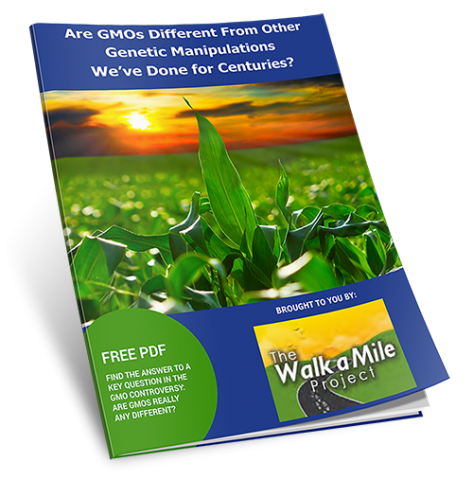The fight to exclude cisgenesis from EU regulation has been ongoing for years in the Netherlands. The term ‘cisgenesis’ refers to the insertion of genes from the same or closely related species into a recipient plant, in contrast with transgenesis, whereby genes from another species are introduced.
In general, the Dutch people are opposed to GMOs, yet the the Dutch Government has been pushing for deregulation of cisgenic plants, including the cisgenic potato, in hopes that cisgenic genetic engineering can make the Dutch plant breeding sector more competitive.

If the EU deregulates cisgenesis, more GM products will be produced, without knowing the ramifications. Click the pic for original photo at http://bit.ly/1PdPDzK
If cisgenesis were to be exempted from EU GM laws and thus escape labeling, the situation could change quickly. A struggle can be expected between the Dutch Government and the Parliament: in 2014, the Parliament adopted a resolution demanding that cisgenic products be labelled even if excluded from GM regulation, in order to guarantee freedom of choice.
This is precisely what government officials and researchers set out to avoid when they began the campaign for the deregulation of cisgenesis. Consequently, if their deregulation lobby proves successful at the EU level, they will find themselves in a very awkward situation. Proposing to label a product that has just been exempted from the EU GM law will not be a popular move in Brussels, where the Netherlands holds the EU Presidency in the first half of 2016.
Wageningen University plant scientists Evert Jacobsen and Henk Schouten are considered the ‘fathers’ of cisgenesis; They claim “cisgenic plants are fundamentally different from transgenic plants”, and that they should be “handled at the regulatory level like traditionally bred plants.” On their website, supported by Wageningen University, cisgenesis is described as “a next step in classical breeding for improving crops.” Their key argument is “plants without foreign DNA should not be regarded as GMOs.” But according to corporateeurope.org, despite all of these statements, the Wageningen researchers clearly acknowledge that cisgenesis is genetic modification, both on this website and in public debates…which leads us to the other side of the argument:
Two groups of scientists (one of them comprising Dutch plant breeding experts) criticized Schouten and Jacobsen’s argumentation, maintaining that cisgenics cannot be regarded as equivalent to traditionally breeding in terms of food and environmental safety.
In fact, cisgenesis as practiced in the DuRPh project, where the GM potato was created in 2005, the standard use of genetic engineering technique was used. In fact, two-thirds of the DuRPh potatoes contained marker genes of bacterial origin, and are thus technically transgenic. (The researchers claim that these genes will not be present in the final product.)
Independent Science News added to the discussion, saying “while categorizing transgenes according to their origins may have merit, changes to risk assessment and regulations need to be based on scientific data not semantics.”
Yes, profit is clearly the motivation behind this discussion for cisgenesis deregulation. According to corporateeurope.org, a specific new trait can be added to an existing variety and patented without having to change the original variety name. Growers can then be charged higher prices due to the patents, which can potentially undermine the rights of plant breeders and farmers to produce new varieties and seeds, jeopardizing agrobiodiversity.
To read the entire article, go to: http://corporateeurope.org/food-and-agriculture/2016/02/apples-and-potatoes-dutch-lobby-deregulation-cisgenesis



